Launching a brand new business venture and deliberating between SEO vs. PPC to spread the word? You’re in good company. Many entrepreneurs face the initial challenge of customer acquisition.
Navigating the complexities of cost, upkeep, and outcomes of a marketing drive can be daunting. Typically, the answer lies in either search engine optimization (SEO) or pay-per-click (PPC) campaigns. But the question remains: which is the right approach for you?
At Flying V Group, our experience spans collaborations with some of the leading companies in the US, such as Bliss Car Wash. This has equipped us with tried-and-true SEO and PPC tactics that consistently deliver in diverse markets.
Both avenues promise growth, but the right choice can skyrocket your ROI. Dive deeper with us to ensure you’re not leaving money on the table.
- SEO versus PPC: Which is the Better Investment?
- Which is a Better Investment: SEO or PPC?
- What is SEO?
- What is PPC?
- SEO versus PPC: Comparison of ROI
- SEO ROI Calculation
- Tips For Improving SEO ROI
- PPC ROI Calculation
- Tips for Improving PPC ROI
- Unlocking Maximum Returns: Your Next Step in Digital Marketing Mastery
- FAQs on SEO versus PPC
- SEO versus PPC: Is PPC faster than SEO?
- Should SEO and PPC be used together?
- What is the relationship between SEO and PPC?
- Is SEO paid or unpaid?
- When should you choose SEO over PPC?
SEO versus PPC: Which is the Better Investment?
SEO (search engine optimization) is the complete strategy of improving the visibility and ranking of a webpage or a website in search engine results pages (SERPs).
PPC (pay-per-click) is a type of online advertising where you pay a publisher (usually a search engine, social media site, or other websites) every time someone clicks on your ad.
SEO and PPC are both effective ways of driving traffic to your website. However, SEO is a long-term investment since it takes time for your website to appear in search results. This is because it may take time for Google to rank your site plus your audience to engage with your content and product. Every person who visits on your website becomes a new lead that needs to engage with your site.
PPC is a more immediate way to get traffic to your website, as you only pay when someone clicks on your ad. You can start generating clicks immediately via Google Ads and/or Bing Ads, etc.
Which is a Better Investment: SEO or PPC?
The answer to this question depends on your business goals and budget. If your goal is to produce more leads or sales, PPC may be a better investment. It also depends on the product you sell; if it needs less research (e.g. An specific book or black socks), then PPC is the best alternative.
However, SEO is a better investment if you have a long-term goal and want to engage with your audience. Remember that SEO creates high-quality leads since they will engage and read a lot of content. So if your product needs more reviews and research from your target audience, you need a comprehensive approach, and then SEO is your best option.
What is SEO?
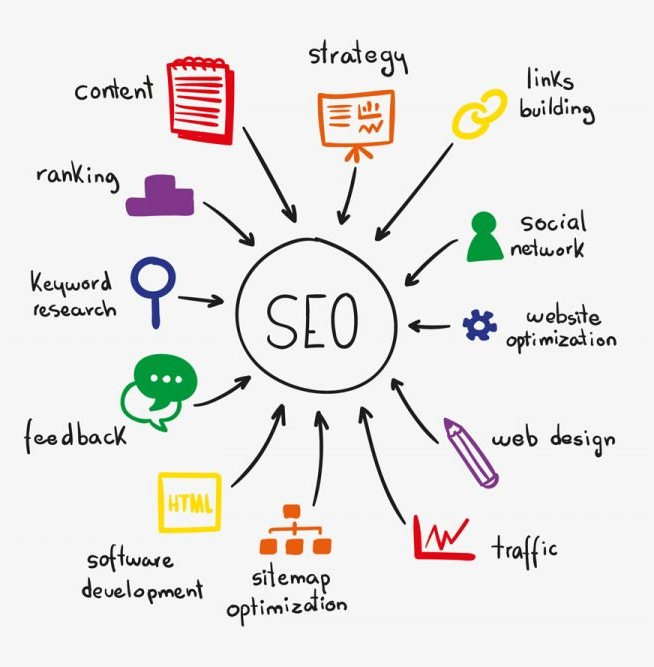
Source: Plancord
Search engine optimization (SEO) is the practice of optimizing a website or online content to improve its visibility in search engines like Google, Bing, and Yahoo.
The primary goal is to increase organic (non-paid) traffic to a website by ensuring that the site appears higher on the list of results returned by a search engine.
SEO Techniques
SEO involves various techniques, including:
1. Keyword Research:
This is the foundation of any SEO strategy. Keyword research involves identifying words and phrases that potential customers might use when seeking products or information related to a business’s offerings.
2. On-page Optimization:
This refers to all the measures that can be taken directly within the website to improve its position in search rankings.
Key elements to adjust include the page title, meta description, header tags, and the actual content on the page.
3. Off-page Optimization:
Off-page SEO is about enhancing your site’s external reputation. The primary tactic is link building, where other reputable websites link back to yours.
4. Technical SEO:
This deals with non-content-related optimization. It’s about enhancing the backend structure and foundation of a website.
Key areas include improving site speed (ensuring pages load quickly), making sure the website is mobile-responsive, creating XML sitemaps for search engines to understand your site’s structure better, and optimizing robots.txt files to direct search engine crawlers on which pages to index or not.
5. Local SEO:
For businesses that have a physical location or serve a specific locale, local SEO is crucial. This involves ensuring that your business appears in local searches and maps.
Claiming and optimizing your Google My Business listing, garnering positive reviews, and ensuring consistent name, address, and phone number (NAP) listings across online directories can boost local visibility.
SEO versus PPC: Pros of SEO
1. Long-Term Results: Once a website is well-optimized, it can maintain high rankings for extended periods, especially if it continually updates its content and stays abreast of SEO best practices. Unlike PPC where traffic stops when you stop paying, organic traffic can continue indefinitely, providing a sustainable and consistent flow of visitors.
2. Cost-Effective: Over time, SEO can be more cost-effective than other forms of paid advertising. While initial SEO efforts might require a financial outlay (for site audits, content creation, etc.), organic listings are essentially free. Once you’ve secured a top position, there’s no cost per click or allocation of budget for advertising, resulting in a higher ROI over the long term.
3. Builds Trust and Credibility: A high-ranking website is often perceived by users as more reputable and trustworthy. Being on the first page of search engine results signals to users that the search engine trusts your content. This credibility can lead to higher click-through rates and conversions.
4. Compounds Return on Investment (ROI): As you continually invest in SEO and your website climbs in rankings, you’ll typically receive more clicks, leading to increased traffic.

This can result in more leads, sales, and revenue. As you continue to invest in high-quality content and optimization, this growth often compounds, giving businesses an escalating return on their SEO investment.
SEO versus PPC: The Cons of SEO
1. Time-Consuming: One of the most significant drawbacks of SEO is that it doesn’t deliver immediate results. Unlike PPC campaigns where you can see instant results once you start your ads, SEO requires patience. It can take months, or even years, to see significant movement in search rankings, especially for new websites or highly competitive keywords.
2. Constant Evolution of Algorithms: Search engines, especially Google, frequently update their algorithms. This means that the tactics that work today might not be as effective tomorrow. Websites can experience drops in rankings overnight if they fail to adapt to these changes, making SEO a constantly moving target.
3. Risk of Penalties: If search engines determine that a website is using “black hat” SEO techniques (unethical practices that violate their guidelines), they can impose penalties. This can lead to a sharp decline in rankings or even a complete de-listing from search results. Recovering from a penalty can be difficult and time-consuming.
4. No Guaranteed Success: Even with significant investment in SEO, there’s no guarantee of top rankings. The search landscape is highly competitive, with many businesses vying for the same keywords. Additionally, search engines’ primary goal is to serve the most relevant content to users, which means they might prioritize other factors like brand reputation, user engagement, or content freshness over traditionally optimized SEO factors.
What is PPC?
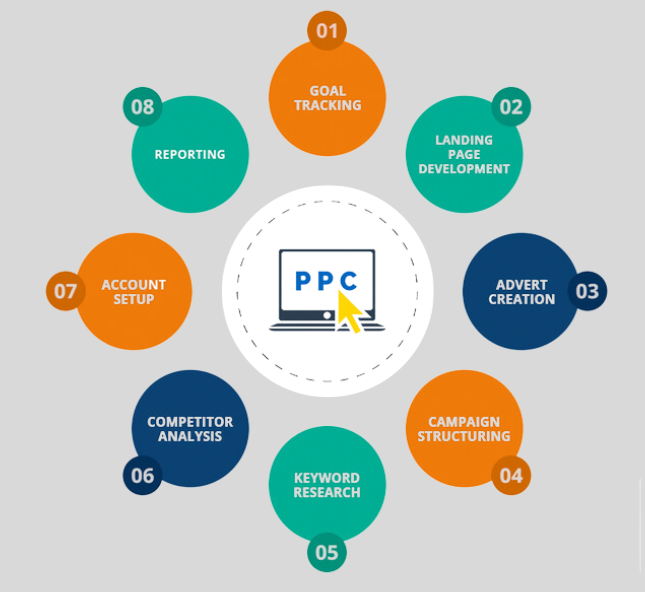
Source: Eveningskool
PPC stands for Pay-Per-Click, a model of online advertising in which advertisers pay a fee each time their ad is clicked. Instead of earning visits organically, PPC allows businesses to buy visits to their sites. It’s a way of using search engine advertising to generate clicks to a website, rather than obtaining those clicks organically.
How It Works:
-
Setting Up a Campaign:
Advertisers select a platform for their PPC campaign, with Google Ads being the most popular, followed by platforms like Bing Ads or Facebook Ads. They then set up a campaign, defining parameters like the target audience, budget, and campaign duration.
-
Keyword Bidding:
For search engine advertising, advertisers bid on keywords relevant to their target audience. When users search for those terms, the search engine displays the PPC ads in the sponsored results section. For example, if a business bids on the keyword “luxury leather shoes,” their ad might show up at the top spot on the Google results page when someone searches for that term.
-
Ad Creation:
Advertisers create concise and engaging ads that are designed to entice users to click. This can include text ads, display banners, or even video ads, depending on the platform.
-
Paying for Clicks:
When someone clicks on the ad, they’re directed to the advertiser’s website, and the advertiser is charged a fee based on their bid amount. Hence the term “pay-per-click.”
-
Performance Analysis:
Platforms offer analytics tools that allow advertisers to monitor the performance of their campaigns. Metrics like the click-through rate (CTR), conversion rate, and return on ad spend (ROAS) help in assessing the effectiveness and ROI of the campaign.
SEO versus PPC: Pros of PPC
1. Immediate Traffic: Unlike SEO, which requires time to build organic rankings, PPC campaigns can generate immediate visibility and traffic once they’re launched. Businesses can quickly appear on the first page of search results or targeted websites, giving them instant access to potential customers.
2. Precise Targeting: PPC platforms offer advanced targeting options. Advertisers can define their audience based on various parameters like geographical location, demographics, interests, browsing behavior, and even the type of device used. This ensures that ads reach the specific audience most likely to convert.
3. Budget Control: Advertisers have full control over their PPC budgets. They can set daily or monthly spending limits, adjust bids for specific keywords, and pause campaigns when necessary. This level of flexibility is especially beneficial for businesses that want to test different strategies or have fluctuating marketing budgets.
4. Measurable ROI: Every aspect of a PPC campaign is trackable. Platforms provide detailed analytics on metrics like clicks, impressions, conversions, and more. This makes it easier for businesses to measure the return on investment, understand which tactics are working, and refine their strategies for better performance.
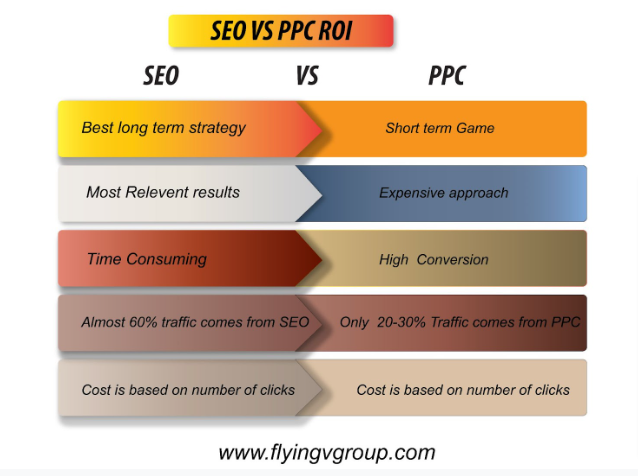
SEO versus PPC: Cons of PPC
1. Costs Can Add Up: While PPC can drive traffic instantly, it can also become expensive quickly, especially if campaigns aren’t managed efficiently. Bidding for highly competitive keywords can be pricey, and without a well-optimized landing page or offer, you might end up spending more without seeing a proportionate increase in conversions. So, in the fight of SEO vs. PPC, SEO wins here.
2. Short-term Results: PPC is largely a short-term strategy. The visibility and traffic you get from your ads stop as soon as you pause or end your campaign. Unlike organic SEO efforts, which can have lasting effects, PPC requires continuous investment to maintain visibility.
3. Complexity and Learning Curve: PPC platforms, especially sophisticated ones like Google Ads, can be complex. Managing campaigns, understanding bid strategies, optimizing for quality score, and interpreting analytics require time, expertise, and continuous learning. Mistakes can be costly, so there’s often a steep learning curve for beginners.
4. Potential for Click Fraud: Click fraud is when your PPC ads are clicked intentionally by individuals or bots without any real interest in your offer, just to cost you money. Competitors or ill-intentioned individuals might repeatedly click on your ads, draining your budget. While platforms like Google Ads have mechanisms to detect and filter out fraudulent clicks, it’s not always foolproof, and some invalid clicks can still go unnoticed.
SEO versus PPC: Comparison of ROI
SEO ROI Calculation
There are different ways to calculate the ROI of SEO and PPC. Here is a simple way to calculate the ROI of SEO is:
ROI = (Gains from Investment – Costs of Investment) / Costs of Investment.
As an example, if we invest $6,000 in your SEO strategy within 6 months (say $1,000 a month) and generate an additional $12,000 in revenue as a result in this duration, your ROI would be ($12,000 – $6,000) / $6,000 = 100%.
Conversely, the same amount of investment may not give you the same ROI in terms of PPC. It would also cut down on your time investment though, but still the result that matters is the revenue generated through a certain amount of time.
Consider SEO if:
- You have a limited marketing budget.
- You want to increase your brand authority.
- You’re willing to get the most out of your investment in the long run.
- You want to write content that your readers can engage with at various points along the sales funnel.
Tips For Improving SEO ROI
Choose the Right Keywords
To get the most out of your SEO investment, you need to choose the right keywords that you include on your website, in blogs, or via meta titles and descriptions. Target keywords relevant to your business and ones that have decent search volume.
Optimize Website for Keywords
Once you have chosen the specific keywords, you must optimize your website for them. This includes using the keywords in your website content, titles, and meta descriptions.
Publish High-Quality Content
The best way to improve your SEO ROI is to publish high-quality content that attracts links and social shares.
Build Links to Your Website
Another way to improve your SEO ROI is to build links to your website from high-quality websites.
Use Paid Search to Enhance Your SEO Efforts
Paid search can be a powerful tool to support your SEO efforts by targeting keywords that are difficult to rank organically. You can capture the low-hanging fruits with pure SEO, and then you can take down the hard-to-rank keywords with PPC.
Track Your Website Performance
Always track the performance of your website using free tools like Google Analytics and Google Search Console, so you can see how your SEO efforts are impacting your traffic and leads.
Adjust Your SEO Strategy
Update your SEO strategy accordingly if you don’t see your expected results. Some options you have are to double down on your content creation, create backlinks, increase the length of your blog posts, optimize your website, etc.
Invest in an SEO Audit
If you’re unsure where to start, invest in an SEO audit to better understand your website’s strengths and weaknesses.
Continue Investing in SEO
The best way to enhance your ROI from SEO is to continue investing in it over time. It may take time, and you need to constantly optimize and monitor your results to get the best out of your SEO strategy.
Avoid “black-hat” SEO Techniques
The black-hat SEO techniques, such as keyword stuffing and link building, like these, can hurt your website ranking.
PPC ROI Calculation
To calculate the ROI of PPC, divide the profits generated from your PPC campaigns by the costs of those campaigns.
ROI = (Revenue – Cost)/Cost x 10
For example, if you generate $1,000 in profits from a PPC campaign and spend $500 on that campaign, your ROI would be ($1,000 – $500) / $500 = 100%.
Consider PPC if:
- You want quick, visible improvements.
- The service or product you provide is unique or innovative.
- If you are advertising a time-sensitive deal, such as a vacation discount.
- If you want to send your audience to a sales or landing page.
Tips for Improving PPC ROI
Choose the Right Keywords
To get the most out of your PPC investment, you need to choose the right keywords. Target keywords relevant to your business and have decent search volume.
You may start your initial keyword research considering some low CPC and high converting keywords. Still, the actual game begins with refining your keyword research by analyzing the performance of your ad campaign.
This should be a consistent process to keep going until you start getting the best CPC.
Create Retargeted Ads
You can create targeted ads to attract a specific niche market. But what if a viewer visits your landing page and leaves without making any purchase.
Retargeting ads can help a lot in this specific scenario. In PPC, you can create such ads to attract the visitors who have left your site with a clear chance to win them back as qualified sales.
Optimize Your Website
You should optimize your website for chosen keywords to rank higher in SERPs. You can also go with CRO (conversion rate optimization) of your landing pages along with general optimization for search engines.
Use Conversion Tracking
As its name indicates, conversion tracking is about tracking how many leads or sales your PPC campaigns generate. This data will help you fine-tune your campaigns and monitor and optimize them to ensure that they are generating the most ROI.
Use A/B Testing
By A/B testing, you determine the best version of your business ads and landing pages to increase your PPC ROI. Once again, it is a part of the ad campaign refining process, which will undoubtedly yield better ROI through PPC.
Regularly Review Your Campaigns
Regularly review your PPC campaigns to ensure they perform as expected. Adjust your campaigns as needed to improve ROI.
Just like your other website operations, you can set up a process for the performance review of your campaigns. Once in place, this process will help you have a better view of how things are working for your good
Unlocking Maximum Returns: Your Next Step in Digital Marketing Mastery
Diving into the digital realm of SEO vs PPC can feel overwhelming, given the many factors influencing ROI. While both strategies present immense potential, navigating them efficiently demands expertise.
Ready to amplify your returns and streamline your marketing endeavors? Trust the prowess of the Flying V Group agency. Let our specialists guide you in harnessing the full power of SEO and PPC, ensuring you get the optimal ROI for your business. Don’t just strategize; capitalize with the right partner by your side.
FAQs on SEO versus PPC
SEO versus PPC: Is PPC faster than SEO?
Yes, PPC is faster than SEO in terms of generating immediate traffic. Once a PPC campaign is set up and activated, ads can start appearing immediately in search results or targeted websites, driving instant traffic. In contrast, SEO efforts, such as improving site content, building backlinks, and making technical optimizations, take time to influence organic rankings and visibility.
Should SEO and PPC be used together?
Absolutely. Using SEO and PPC together can provide a comprehensive digital marketing approach. While SEO builds a long-term organic presence, PPC can fill in gaps, target specific keywords or promotions, and provide instant visibility. Together, they can cover more digital real estate, enhance brand presence, and offer insights that can be used to optimize both strategies.
What is the relationship between SEO and PPC?
SEO and PPC are both search engine marketing strategies, but they target different areas of the search results page. SEO focuses on earning organic rankings through website optimizations and content relevance, while PPC involves paying for ad placements in the sponsored results section. Additionally, data and insights from PPC campaigns, such as keyword performance, can be used to inform and refine SEO strategies, and vice versa.
Is SEO paid or unpaid?
SEO stands for Search Engine Optimization, and it targets unpaid (or organic) search results. This means businesses don’t pay search engines directly for better rankings. Instead, they invest in optimizing their website and content to naturally rank higher based on relevance, authority, and other factors search engines consider. While there might be costs associated with SEO services, tools, or content creation, it does not involve paying for specific placements like PPC does.
When should you choose SEO over PPC?
Choose SEO for long-term, cost-effective strategies. It’s ideal for businesses seeking sustainable growth, especially when on a tight budget. Organic results from SEO often build trust more than ads. In highly competitive sectors where PPC is expensive, SEO can offer better value.

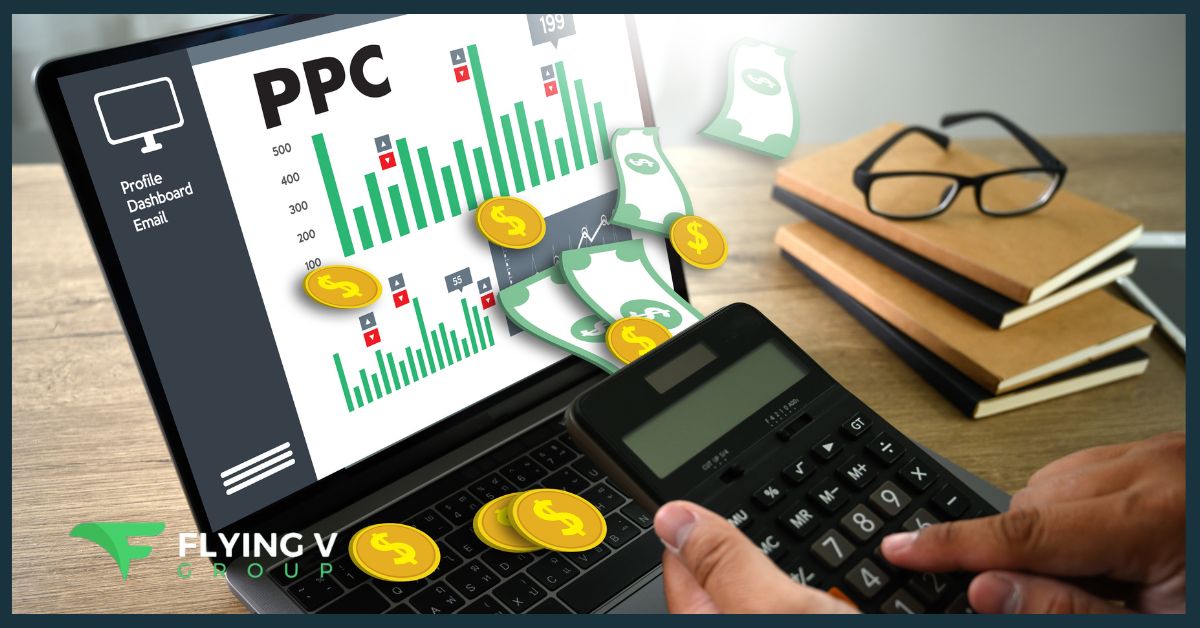



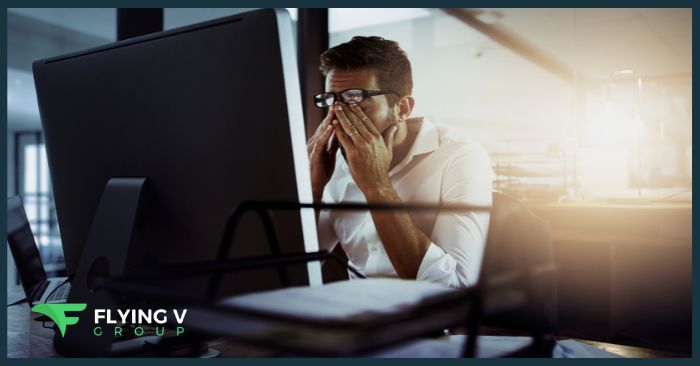
0 Comments